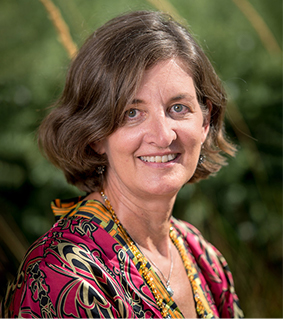Original post from Thomas Reuters Foundation News
LONDON, May 15 (Thomson Reuters Foundation) – Top Silicon Valley executives will help to grow the businesses of 21 entrepreneurs helping migrants, refugees and trafficking survivors, California’s oldest university said on Tuesday, as companies with a social mission increase around the world.
The 21 social enterprises selected to join Santa Clara University’s six-month online programme include a coffee company that uses its profits to educate South Sudanese refugees and a health insurance company for unregistered migrants in Thailand.
“We are inspired by the geographical diversity of over 100 applicants and the imaginative solutions they have developed to restore dignity to the most marginalized,” said Thane Kreiner, director of the center that runs the programme, in a statement.
Entrepreneurs using businesses to help tackle social problems are emerging across the globe – improving communities, breaking the cycle of re-offending, solving education issues and reducing isolation amongst elderly.
The Miller Center for Social Entrepreneurship at Santa Clara University says it is the world’s largest social enterprise accelerator, having supported almost 900 young companies with the connections and knowledge they need to succeed.
It is the first time that the center, some 80 km south of San Francisco, has run a programme to boost the business skills, investment readiness and social impact of organisations that serve migrants, refugees and human trafficking survivors.
Mentors include executives from Google, LinkedIn and Paypal.
“Given the Syrian war and impact of climate change on poor communities around the planet, a lot of our mentors are interested in this cohort because they realise there are big problems that are growing in size,” said Kreiner.
Worldwide, 258 million people are international migrants, according to the United Nations (U.N.), about 22 million of whom are refugees.
Manyang Reath spent 13 years in refugee camps in Ethiopia after fleeing civil war in Sudan. Now 29 years old and based in Washington D.C., he started 734 Coffee in 2015, using the profits to pay for the education of displaced children like him.
The coffee comes from Gambella in Ethiopia where more than 400,000 South Sudanese refugees live in camps, the U.N. says. Gambella’s geographical coordinates – 7˚N 34˚E – give the coffee its name.
Reath has gone from selling 10 bags a month to about 4,000 bags currently and is hoping the business advice will help him create new markets for his coffee and raise awareness.
“There are people who want to do good for refugees but they don’t know what to do,” he told the Thomson Reuters Foundation.
“Maybe if they see all these projects, it will shed light on this issue.”
(Reporting by Lee Mannion @leemannion, Editing Katy Migiro. (Please credit the Thomson Reuters Foundation, the charitable arm of Thomson Reuters, that covers humanitarian news, women’s rights, trafficking, property rights, climate change and resilience. Visit http://news.trust.org)


